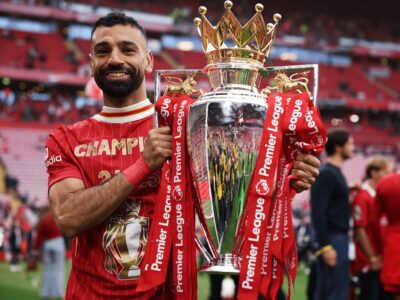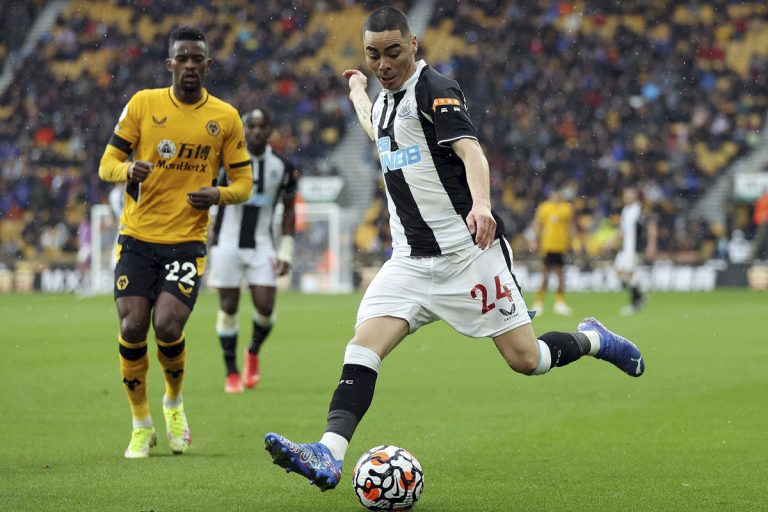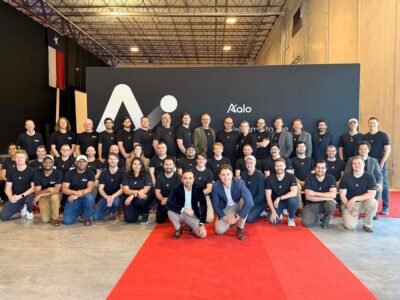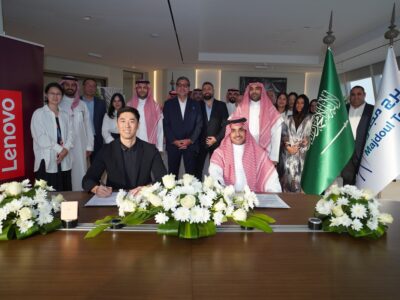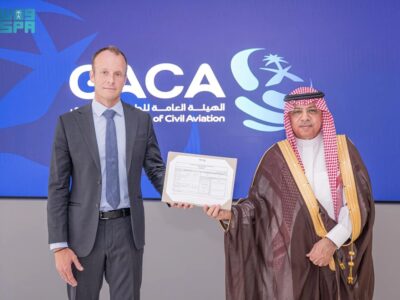As the dust settles on the news that Newcastle United has become the latest football club to be taken over by Middle East money men; and fans of the Premier League outfit draw up Fantasy Football-style shopping lists for transfer targets to take to Tyneside, Arabian Business takes a look behind the headlines and finds out why now is the right time for Saudi Arabia’s Public Investment Fund to kick off its overseas spending in the sport.
European leagues are no strangers to Middle East owners and investors, Paris St Germain (owned by the Qatar Sports Investment) and Manchester City (Abu Dhabi United Group), may arguably be the highest profile, but there are plenty of other examples in the shape of Sheffield United (Abdullah bin Musaid Al Saud), Everton (Iranian billionaire Farhad Moshiri), Hull City (Egyptian billionaire Assem Allam) and Malaga (Sheikh Abdullah Al Thani, a member of the Qatari royal family).
We talked exclusively with Simon Chadwick, global professor of the Eurasian Sport Industry and director, Centre for the Eurasian Sport Industry, about why this is the right time for Saudi Arabia to join the party.
Why is Newcastle and the Premier League so important to Saudi Arabia?
Initially when the takeover was proposed there seemed to be this view that it was a speculative acquisition. But the fact that PIF has hung around for really the best part of two years suggests that this is not a speculative acquisition, nor is it a vanity purchase, that there’s something more strategic about it.
I think in terms of Saudi Arabia, obviously the country is committing significant amounts of money to sport and to football and this is all part of its pursuit of Vision 2030. And there will be impact upon, for example, the development of Saudi Arabian football – you can imagine young Saudi professionals coming to train with Newcastle United, getting experience of a Premier League club and a Premier League environment.
But I think, in my view, it goes beyond this. In terms of a revenue-generating asset, you only have to look at Paris St Germain. In 2011 the club was generating less than 100 million euros-a-year and now, ten years on, and the club is generating more than 600 million euros-a-year.
It’s not inconceivable that by 2030 Paris St Germain will be turning over in excess of a billion euros-a-year in business. So there is a revenue-generating asset there.
I think the club will also be used as the basis for promoting Saudi Arabia’s wider political economic goals. The Saudi Arabian government wants to create a new airline to rival Emirates and Qatar Airways and to establish Riyadh as a transit hub. What better way to promote this new airline when it is launched than by having the name on Newcastle United’s shirts? The Premier League is screened in more than 200 territories across the world and so £300 million for coverage of that nature is a bargain.
 Simon Chadwick, global professor of the Eurasian Sport Industry and director, Centre for the Eurasian Sport Industry.
Simon Chadwick, global professor of the Eurasian Sport Industry and director, Centre for the Eurasian Sport Industry.
But I think there are local things here too. We know that the Reuben brothers are involved in the deal. The Reuben brothers are property billionaires and I suspect that there may be infrastructure and property related issues here, including one of the things that Newcastle United needs – a new stadium that’s going to deliver the types of revenue that we talked about earlier with Paris St Germain.
But at the same time there is a need for wider residential, commercial real estate development in Newcastle and in the north east generally and what ownership of a football club does is it enables that kind of development to take place.
The other thing to keep in mind too is that the River Tyne is a container port, a container destination, a port city and as we know Saudi Arabia is trying to create this global network of container ports and the biggest of those are actually in Saudi Arabia itself.
We also know too that, they are referring to the north east of England as the new Saudi Arabia of wind power, so I know the River Tees in Middlesbrough and the River Tyne in Newcastle, they’re really competing with one another to become an important capital for the manufacture and distribution and also placement of wind turbines.
So I can see some long-term political and economic benefits from the investment, specifically within political terms. Saudi Arabia is trying to project a new, different, progressive, more modern image, and by it being associated with the Premier League it has the platform to be able to do that.
Do you think we can expect Manchester City-style investment in Newcastle?
I do and I think it’s entirely feasible that part of the game plan could be to create this globally franchised entertainment business in the same way that City Football Group has been created because, if you look at where the Public Investment Fund has been investing, so for example in Reliance in Mumbai; Mubadala of Abu Dhabi and Silverlake, both of whom have invested into City Group, have also invested into Reliance.
We also hear rumours too of Saudi Arabia possibly investing into Marseille, into Inter Milan, and so I can see that this Manchester City-style investment and network will take in Newcastle and beyond.
My feeling is, the UAE is a small nation, just 1.8 million people. It just doesn’t have the heft, the clout of Saudi Arabia, so we really are talking about a super-sized Manchester City-style investment.
Do you envisage a Middle East rivalry between Abu Dhabi and Saudi Arabia, City and Newcastle?
Well there already is a Middle East rivalry between City and Paris St Germain, but now obviously Newcastle is going to be a part of this.
This is how the Gulf is. I always think it’s a very family-like environment in the Middle East where they do support and they do engage and there is affinity between them. But it’s a bit like having a brother or sister, if I have one car then my sister is going to buy two cars, and if my sister has two cars, my other brother will have three cars and so this intense competitiveness between these nations I think inevitably dictates that there is going to be a rivalry and a desire, a quest to be the biggest and the best.
Saudi Arabia is late to the party. Qatar has been doing it, Abu Dhabi’s been doing it. We’ve seen some Saudi Arabian investment, for example in Sheffield United and elsewhere, but I think the government in Riyadh probably sees that there is a real opportunity to grow and develop and be the biggest over and above Qatar and Abu Dhabi.
Why have PIF chosen to invest in a football club, given the relatively low returns?
This is not about football, it’s football as a means to an end. Saudi Arabia could have bought any club, they could have bought West Ham, they could’ve bought Everton or Southampton. I’m sure with the right money, and they’ve got that money, they could’ve bought Manchester United. The fact that they didn’t and they bought Newcastle, I think there is some commercial potential, some industrial potential, some political potential in being associated with Newcastle, but I think ultimately the football club is almost incidental to what they’re trying to do.
 The Premier League is screened in more than 200 territories across the world.
The Premier League is screened in more than 200 territories across the world.
Essentially what they’re trying to do is to create a team, create a club in the form of their own identity, so it reflects who they are and what they’re trying to do.
It’s not solely about making a profit. There are other reasons for doing this as well, so for example in the way that football enables connections to be built with key stakeholders, not just in the footballing ecosystem, but more generallly, politically and economically.
The lesson from PSG and Manchester City is you can make money and you can make profit, but this is peanuts in the great scheme of things for a country like Saudi Arabia. So the greater benefits come from other things and that is essentially what this is all about.
Saudi Arabia already has golf, Formula E, Formula One, boxing, is this another way for the kingdom to cement itself on the sporting world?
Absolutely. The answer to your question is yes. I think what’s interesting about this is we have seen a focus on establishing the country as an event destination – Formula E, boxing and so forth. We’ve seen in recent weeks too, moves to promote Saudi Arabian football with the launch of its strategic plan for football.
We see elements of this in terms of sports tourism, I’m thinking Qiddiya and also Neom. But for the first time what we’re seeing is Saudi Arabia moving overseas and acquiring an overseas sports asset and I think that’s what’s significant about all of this in that it’s a new and a different move.
What’s going to be interesting as a next step is what happens in terms of building the network of overseas sports properties. Are they in football, are they in other sports, how do they connect with entertainment and other business, and so on and so forth.


